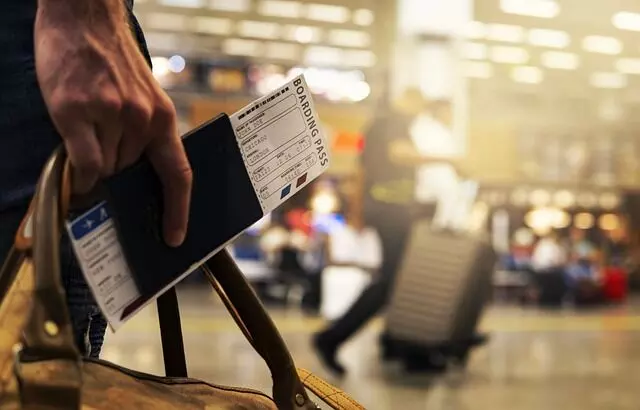An essential slice of life
The Constitutional right to travel overseas is subject to certain restrictions, but those constraints must be fair, reasonable, and in conformity with the rule of law

Our Constitution gives us wings to fly. The Apex Court has held in a catena of judgments that, according to our Constitution, life does not mean mere individual physical existence, but it means a good quality of life, which includes the right to travel. Needless to mention, everything has to be within the parameters of the law. As per the provisions of our Constitution, no person can be deprived of their life or personal autonomy except according to the procedures established by law.
The provision of moving freely throughout the territory of India is established under Article 19 of the Indian Constitution, and the right to travel abroad is derived from the right to life and personal liberty provided under Article 21 of the Constitution. Article 21 provides that no one shall be deprived of their life or personal liberty without following the procedure established by law. The Supreme Court of India has held that the right to travel abroad is a pertinent component of the right to liberty, and if this is not granted, then liberty is cramped. Of course, there are restrictions to this for protecting certain circumstances such as national integrity, relations with other countries, security and interest, public and state order, health, administration of justice, etc.
Certain occasions that may attract constraints on the right to travel abroad have been specified under the Passports Act, 1967, such as: when a passport has been obtained by misrepresentation/fraud/concealment/suppression of facts or in a mala fide manner, or when it is wrongfully possessed; if any conditions of the passport or travel documents are contravened; when proceedings of an offense allegedly committed are pending before a criminal court; if there is a summon or warrant for the appearance or arrest of the passport holder or if there's an order prohibiting departure from India; when a passport is cancelled owing to the protection of security, sovereignty, integrity, the general interest of the public, friendly relations with another country, etc.; and when a court has convicted a passport holder for an offense involving moral turpitude and there is imprisonment for not less than 2 years, among other things. However, it has been clarified by the courts that principles of natural justice must be followed before impounding a passport.
In 1967, the Apex Court, in Satwant Singh Sawhney's case, held that a person cannot be denied their right to travel under Article 21, except in accordance with the prescribed law. In the case of Maneka Gandhi vs. UOI in 1978, the Supreme Court clearly held that the right to travel abroad is a fundamental right under the Indian Constitution, and the denial of a passport without an appropriate procedure has been deemed a violation of Constitutional right.
When it comes to criminal law, the courts have inter alia held that a person facing a criminal trial is generally entitled to travel abroad, subject to reasonable curbs. For example, they must not flee, but rather attend court or join investigations whenever required. Various courts have recognized the need to strike a balance between an individual's personal volition and their obligations towards the state. There is also discretion available to impose conditions for granting bail as per the Code of Criminal Procedure. Inter alia, the courts have acknowledged the necessity of allowing accused persons to travel abroad during the pendency of their trial, primarily due to the generally long durations of such cases. Of course, the primary consideration before the courts is whether the presence of the accused can be enforced at the time of trial or for certain enforcements, prosecutions, etc. This can be enforced by demanding an undertaking from the accused, assurance of their presence, among other things. Relevant documentation is also required.
Even the International Covenant on Civil and Political Rights of 1966 has dealt with the prerogative to travel abroad. It is similar to the constitutional rights provided in India. However, the Covenant also places certain disclaimers and restrictions. Interestingly, the Supreme Court has held that if there is a contradiction or friction between national and international law, the national law will prevail.
The right to travel overseas is subject to restrictions, but those restrictions must mandatorily be fair, just, reasonable, and in conformity with the principles of natural justice.
The Constitution of India takes care of every little aspect of human life. It promotes righteousness, justness, and fairness, with reasonable restrictions to be imposed as per the law. Of course, the implementation and awareness of it in full spirit are most important, and for that, the most pertinent needs are education as well as economics.
The writer is a practising Advocate in Supreme Court and High Court of Delhi. Views expressed are personal



